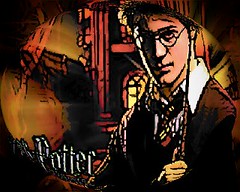Tell Me a Story - writing tip
AJ - Do you have any suggestions for those of us perfectionist/ slowpokes who have a hard time NOT editing as we write? Basically I write crap. I have to keep editing it away.
Hi, Billie. Thanks for contacting me. I can only suggest that because you understand your problem, the answer virtually lies in your own hands. Recognizing that you’ve hit an obstacle is certainly the first step - and even the best writer churns out crap in the first draft.
Some writers become drunk with their own words and don’t recognize what they’ve written can have anything wrong with it. They are deluding themselves. Their writing will remain crap.
Words have worth
Maybe
your problem is the opposite in that you don’t believe your words have worth. If that’s the case, then you too, are deluding yourself. There is something of worth in everything you write. Amongst that crap will be a gem, and if you clean it up it will sparkle.
Once you acknowledge a first draft, warts and all, is an essential part of writing, maybe you’ll face it more philosophically and proficiently. No one is going to read your first draft. It’s for your eyes only, a scribbling of basic ideas.
Force yourself to write.
Striving for the ultimate is an essential part of success, but you really shouldn’t let it get in the way of putting that precious story down. Be hard on yourself. Force yourself to simply write until the draft is complete. When the draft is finished, you can give yourself full-rein to edit. You can be as harsh as you like – in fact, you should be severe. Stories are not written, they are re-written.
Overcoming the problem.
Years ago I had trouble with putting profanities into my work.
I overcame the problem by writing a whole story using the most foul-language I could dream up. I let it flood out; in fact, I overdid the writing. The story was unreadable because of this overuse of swear words, but it cured me.
Maybe you could try something similar with, say, a version of your very own NaNoWriMo. Set your own target then write like mad for a month – forget quality – forget story content – just
give yourself permission to complete a novel-full-of-crap within a month.
Expect crap, write crap; be satisfied with crap - but you might be pleasantly surprised. You might even have a story you can use sometime – and you might just be cured.
--------------------------------------------------------------





